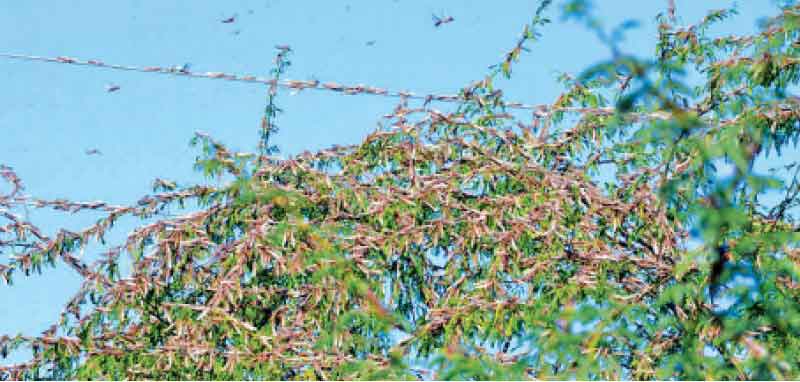INDIA, PAKISTAN: An invasion by desert locusts has hit large swathes of India and Pakistan in the middle of the coronavirus pandemic.
Large and aggressive swarms of these crop-devouring short-horned insects have invaded more than two dozen districts covering more than 50,000 hectares of desert areas of western India. Rajasthan, Madhya Pradesh and Gujarat are the worst affected states.
In neighbouring Pakistan, authorities declared a nationwide emergency in February, saying locust numbers were the worst in more than two decades. Local reports say that farmers are fighting the "worst locust plague in nearly three decades" and the swarms were decimating crops and sending prices of food soaring.
Some 38% of Pakistan's area spread over the provinces of Balochistan, Sindh and Punjab are "breeding grounds" for locusts, according to a report by the Food and Agricultural Organization (FAO) of the United Nations.
"This is the biggest invasion in nearly three decades. The swarms are very big and they have migrated from across the border after breeding a month earlier than we were expecting," KL Gurjar, deputy director of India's Locust Warning Organisation, said.
The swarms are still active in five districts of Rajasthan and Madhya Pradesh. Each of these one-square-kilometre swarms contains up to 40 million insects and they travel fast, sometimes up to 400km (248 miles) in a day, officials say.
If not controlled, desert locusts can damage food supplies and cause famine. Some 45 million sq km of land in 90 countries are potentially prone or under the threat of invasion by the desert locust, according to the FAO. - BBC



Add new comment